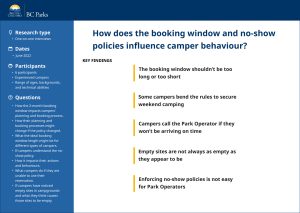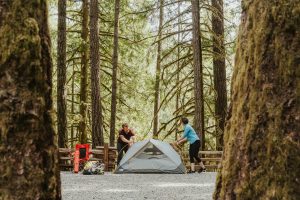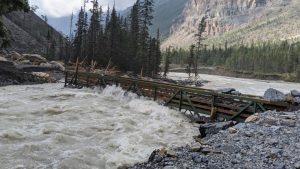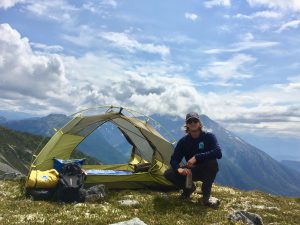Know Before You Go
Categories:
Written by Abby Koning
Before you take an international flight, you make sure you have your passport. Before you start your car, you put on a seat belt. And before you go to the grocery store, you make a grocery list. Many times a day, we check in with ourselves to make sure we are prepared. Most of the time, we do this without thinking. It becomes routine, and when we slip up, like forgetting to pick up that extra carton of milk, the consequences are rarely dire. Unfortunately, these daily calculations around risk don’t quite add up when we head outdoors. A little slip-up can have big consequences, but with time and a little extra effort, preparing to head outdoors can become second nature.
Take the following five steps to help you prepare for your next visit to a B.C. park:
- Research your destination
When you’re going on a trip, it’s important to know about where you’re headed. Even if you’ve been there before and feel like you know the park well, conditions can always change.
For example, summer is peak camping season, but it’s also peak forest fire season. Is the park you’ve got your eye on open, accessible, and safe? Have you checked whether you are allowed to have a campfire? Or perhaps the trails or campgrounds are under construction. No matter how many times you’ve camped in a park, the only way to know its current condition is to look it up before you go. Parks can change day-to-day, and they always change seasonally. Be sure to check out the BC Parks website and look up the specific park you’re interested in visiting. We have a webpage dedicated to each one of our parks with the most current information you need for a great time. Additional sections of the website can help improve your visit by offering guidance on wildlife encounters, health and safety and camping ethics.
The park-specific webpages are also great resources to learn about what amenities are available in each park. For example, some parks are remote or in the backcountry and may not have running water. Many parks, especially backcountry parks, don’t have rangers or park operators present to rely on in emergency situations. Be sure to understand your needs and wants before you go, so you know what you’re looking for and what to expect when you get there.
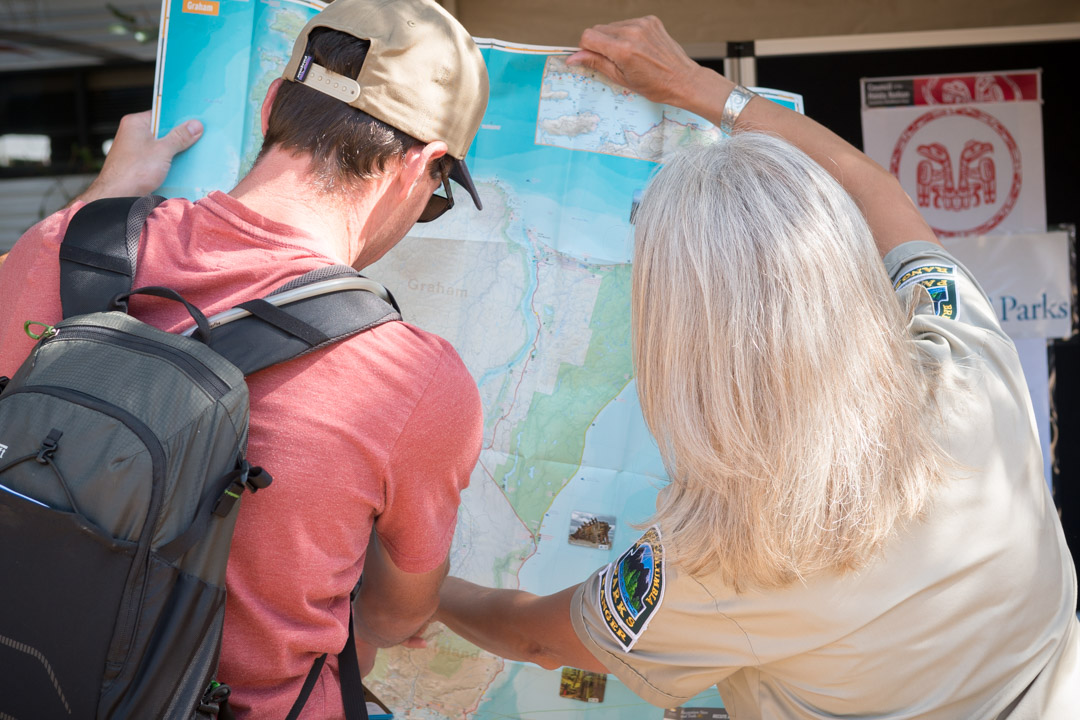
- Bring a good attitude
We think B.C.’s parks are great destinations, and so do a lot of people! This means that some parks can get busy. If you are planning to go to a popular park at peak times, be prepared for crowds. Know that you’ll likely be running into a lot of people during your hike, so be sure to bring a good attitude. A smile, wave, or hello can go a long way and reflects the friendly and welcoming spirit of British Columbians.
But, if you really want to escape the crowds, consider going at less popular times. You know what they say: “the early bird gets the worm!”
And if you really, really want to make sure you get in that peace, quiet, and solitude, think about trying out an alternative park that experience fewer visitors. We promise there is something amazing about each and every one of our parks, so wherever you end up going will be an awesome choice.

- Pack the essentials
When we say pack the essentials, we’re not talking about bringing a camera, your favourite bathing suit, or even a tent, but rather packing along your ten survival essentials. Bringing extra water, clothing, batteries and more is a must. It may seem a little overkill at first, but you won’t be thinking that when you find yourself in a situation where you need those extra resources.
Keep in mind the ten essentials are a minimum. Depending on what you are doing and where you are going more gear and training may be required to keep you safe. For example, many BC Parks do not have cell phone service. Depending on your activity and park of choice, consider bringing a backup means of communication, like a satellite phone or a personal locator beacon, and don’t forget those extra batteries.
Outdoor adventures can be unpredictable, so the least you can do is to expect the unexpected.
Learn more about packing the essentials: https://www.adventuresmart.ca/land/survive-essentials.htm
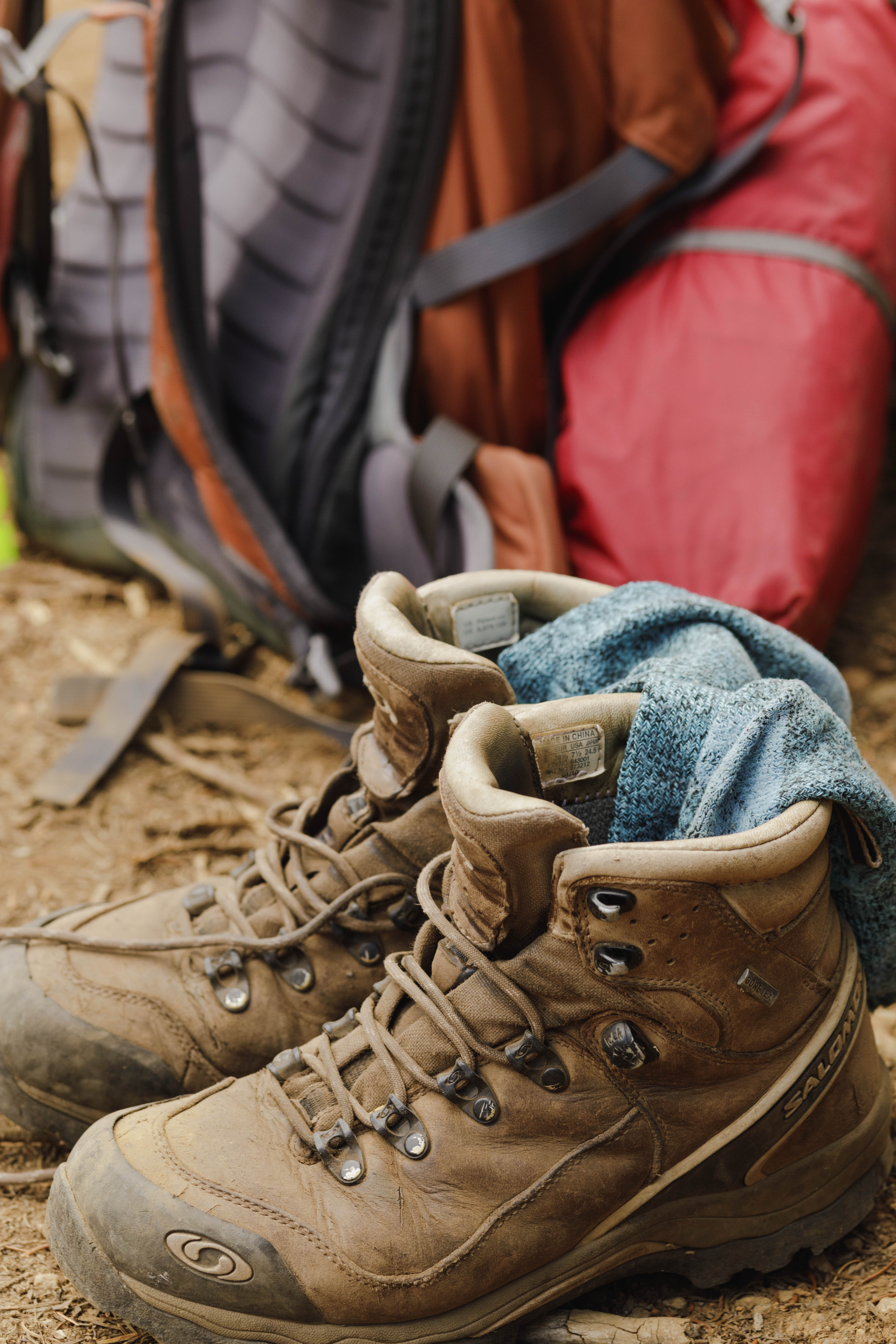
- Leave a trip plan
Even the most experienced hikers can get in trouble, so it’s important to make sure you have a plan in place in case you need some help. Wherever you’re going, you should always leave a trip plan. Let someone responsible know where you are going and when you expect to return. You can’t always avoid getting into trouble, but you can plan to get help.
Making a trip plan doesn’t have to be difficult – in fact, there’s an app for that! By downloading the AdventureSmart Trip Plan app, you can make and send your plan in just a few quick steps. Trust us, it’s better to be safe than sorry.
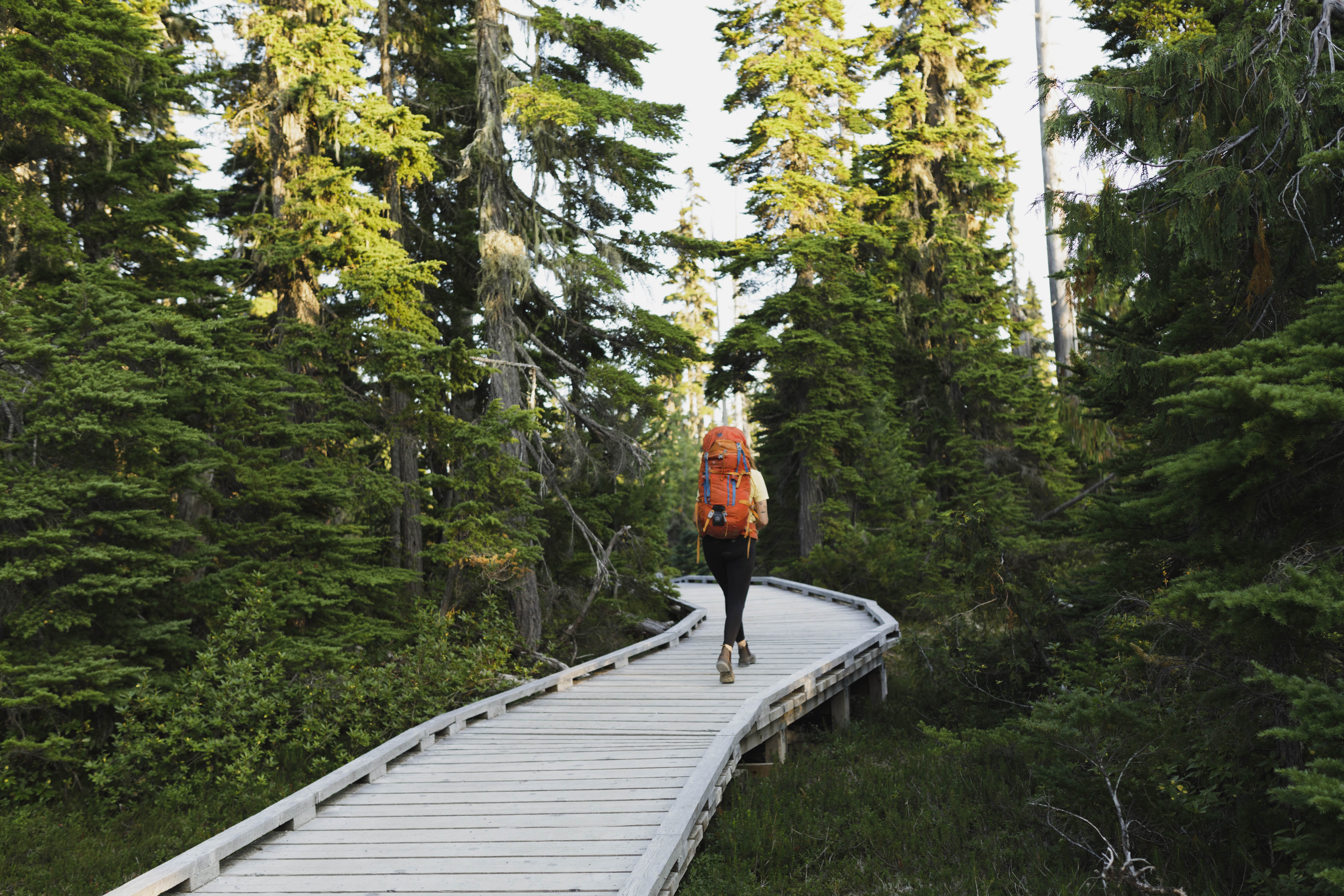
- Know that your safety is your own responsibility
With access to great parks comes great responsibility. You know yourself best and the decision of how well you are prepared ultimately comes down to you. But be honest with yourself about your level of skill and knowledge in the outdoors. Don’t take on too much risk if you don’t feel comfortable handling an unexpected scenario.
BC Parks takes visitor safety seriously – in fact, it’s one of our highest priorities. We do our part by assessing risks, managing hazards and striving to make that pertinent information available in a timely manner through the BC Parks website and in the parks. But we can’t do it without you doing your part. Developing your skills in the outdoors takes time. You may not be experienced enough to go on an overnight backpacking trip along the Berg Lake Trail, but that doesn’t mean you can’t have just as good a time on a day hike. If you want to boost your backcountry skills, consider taking courses with a certified guide, looking into joining a local section of the Alpine Club of Canada or a local hiking group. Remember to meet yourself where you’re at and enjoy looking forward to future hiking goals.
We’re excited to see you in our parks, and when you plan ahead and prepare, you’re bound to have a good time. Keep track of park conditions, pack the essentials, and don’t forget to bring a smile!

